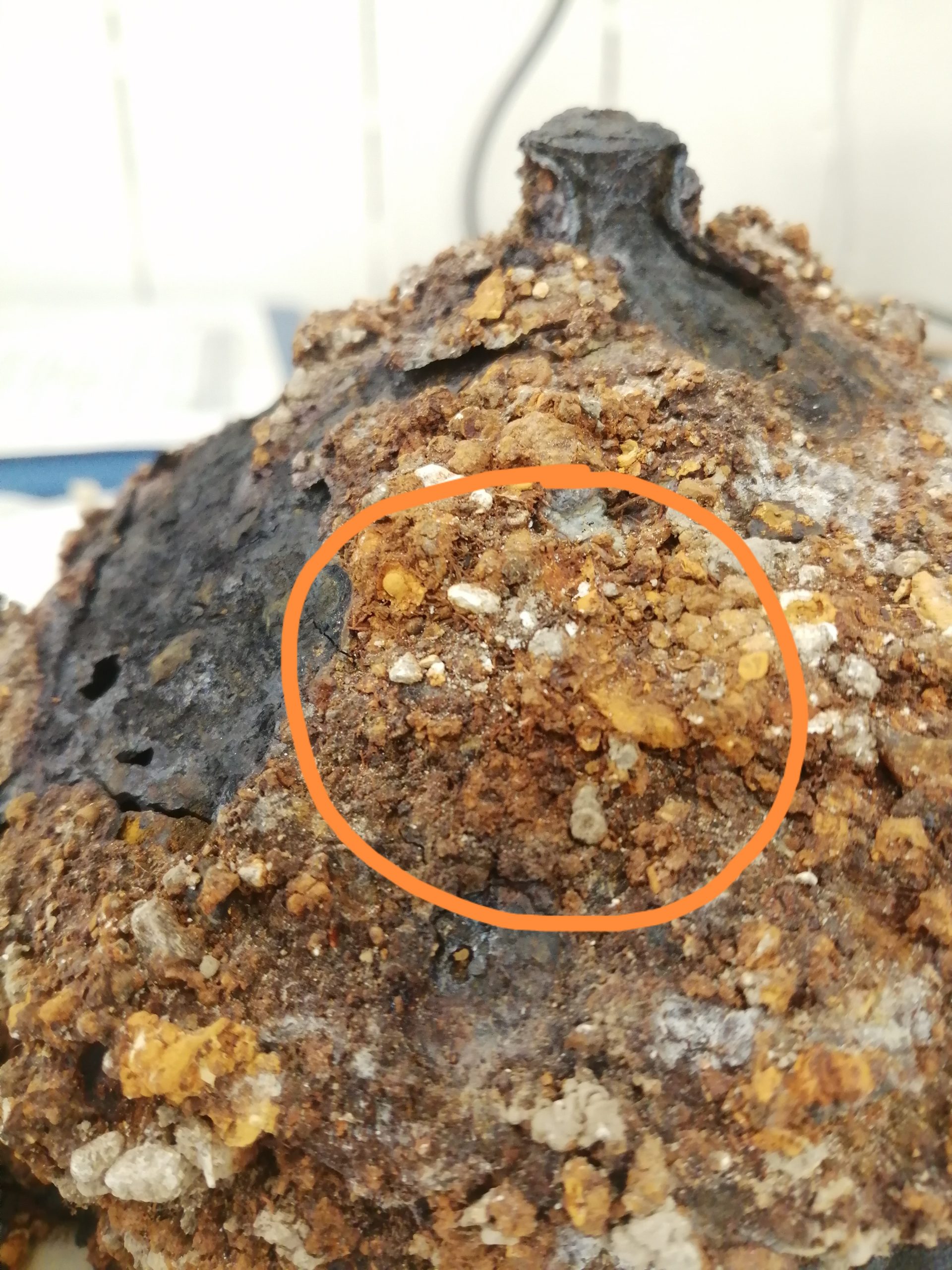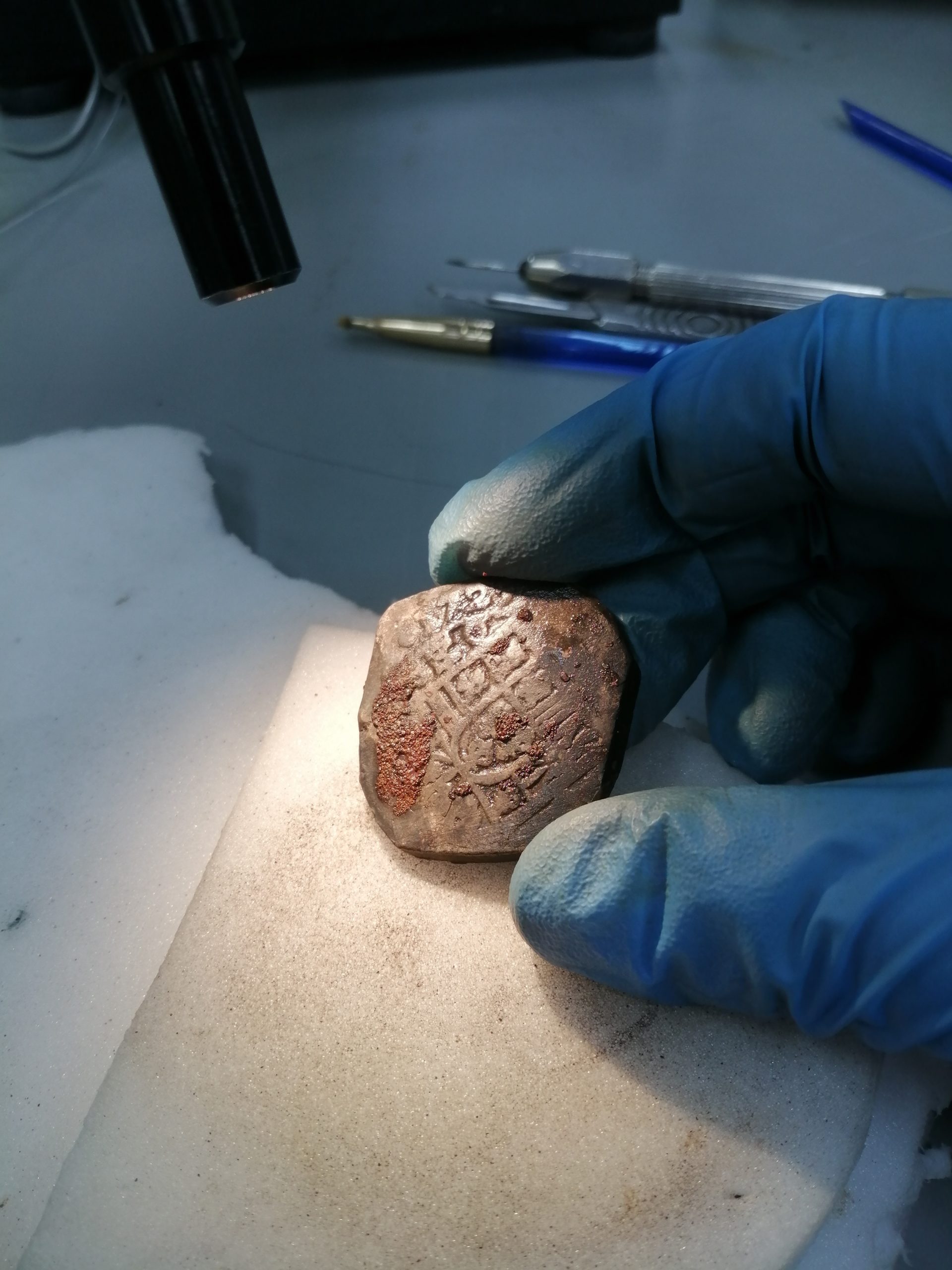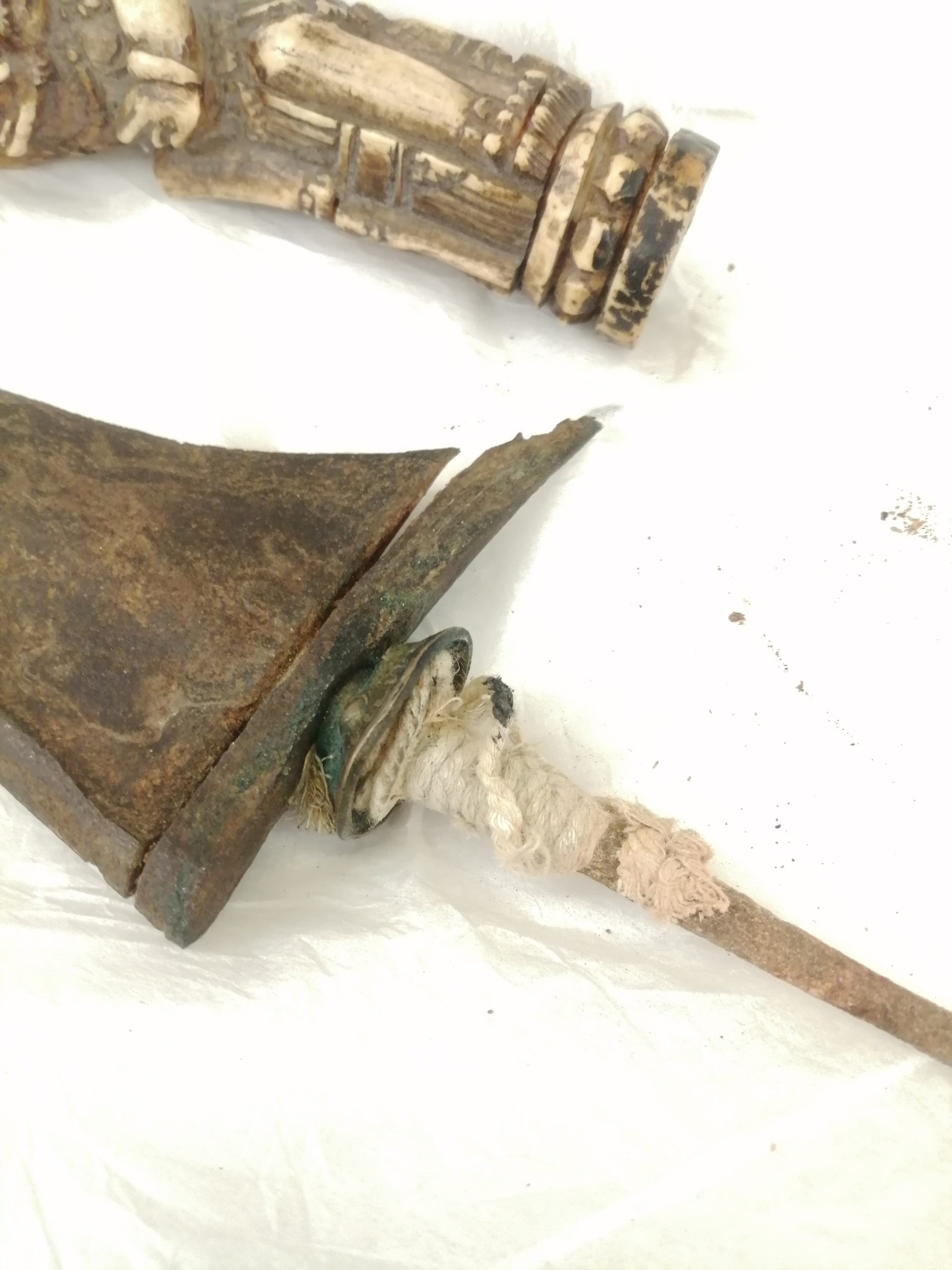Ethical considerations & professional standards
- Historical evidence – the client had requested removal of the soil which would have irreparably damaged the object, and destroyed organic material. Discussion with the client led to his agreement not to carry out that request.
- Stabilisation for archive – Coins recovered from the shipwreck Rooswijk were treated minimally, as opposed to ‘for display’.
- Conservation or restoration – repair to this object would have involved removal of original material, so a mount was designed to hold the pieces in their original positions, thereby conserving more than just the object but also its story.
- Conservation principles vs realistic priorities – Analysis of survey results for my dissertation have revealed that practical concerns may be prioritised over conservation ethics, prompting discussion within the thesis.
- Cultural considerations – Following research into the cultural meaning of an Indonesian dagger, a treatment was devised which followed both conservation ethics and traditional ritual.
- ICON emerging professionals network – As a member of the steering committee, we are committed to providing resources, information and events for emerging conservators.
Skills
- Knowledge and communication of ethical values and conservation considerations to clients and the public.
- Understanding of the value of minimal intervention, and consideration of the level of intervention appropriate.
- Research into object history and respect for cultural values. Adaptability of treatments to encompass cultural considerations.
- Continued professional development including professional networking, management of resources for ICON EPN and practical benchwork.




